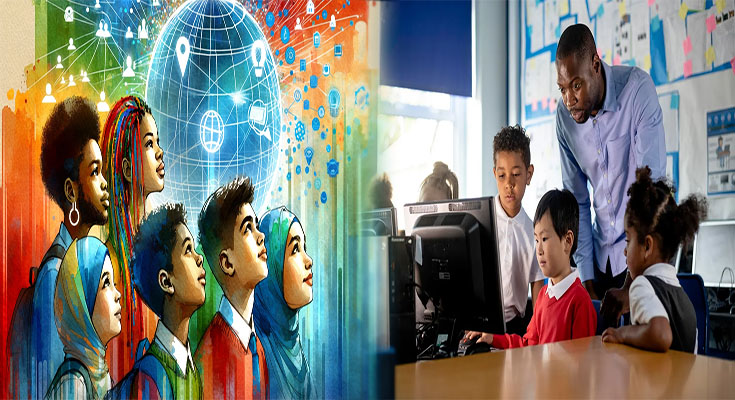As we stand on the cusp of a new era in education, technology is playing an increasingly pivotal role in shaping the school of tomorrow. With innovations such as digital learning platforms, virtual reality tools, artificial intelligence, and personalized learning software, technology has the potential to revolutionize the way students learn, teachers teach, and schools operate.
One of the key ways technology is transforming education is through personalized learning. By leveraging data and analytics, educators can tailor instruction to meet the individual needs and learning styles of each student. Adaptive learning software can provide students with targeted exercises, immediate feedback, and customized learning paths, empowering them to progress at their own pace and reach their full potential.
Technology is also driving collaboration and communication in the classroom. Virtual classroom platforms enable students and teachers to connect, share resources, and engage in discussions regardless of their physical location. Online collaboration tools foster teamwork, creativity, and critical thinking skills, preparing students for the interconnected, digital world they will enter upon graduation.
Furthermore, technology is enhancing teacher effectiveness and professional development. Teachers can access a wealth of educational resources, lesson plans, and best practices online, enabling them to stay current with the latest teaching strategies and pedagogical approaches. With the support of technology, teachers can engage in continuous learning, collaboration with peers, and reflective practice to improve their instructional methods and student outcomes.
In the school of tomorrow, technology will also play a crucial role in promoting digital literacy and 21st-century skills. Students will need to be proficient in using technology, evaluating information critically, solving complex problems, and communicating effectively in a digital environment. By integrating technology into the curriculum, schools can equip students with the skills and competencies needed to thrive in the rapidly evolving, technology-driven world.
Moreover, technology has the potential to break down barriers to education and improve access to learning opportunities. Online courses, digital textbooks, and educational apps enable students to learn anytime, anywhere, and at their own convenience. This flexibility is particularly beneficial for students in remote areas, those with physical disabilities, or those who require alternative learning formats.
As we look ahead to the school of tomorrow, it is evident that technology will continue to reshape the landscape of education. By harnessing the power of technology, schools can create engaging, interactive, and adaptive learning environments that cater to the diverse needs and interests of learners. The transformative role of technology in education holds the promise of unlocking new possibilities, enhancing educational outcomes, and preparing students for success in the digital age.





